John in DCPodcastsTech TransformationViega Smart Connect Technology https://vimeo.com/1086629733 John in DC On this Weekly Update, John lobbies in DC for the plumbing industry on issues such as WaterSense, tariffs, and counterfeit knockoff plumbing fixtures. Also, Tim Ward visits with friends at the Eastern Energy Expo. John also tours the NIST building with PILC. Podcasts AFC Read more
IAPMO

Table of Contents
John in DC
On this Weekly Update, John lobbies in DC for the plumbing industry on issues such as WaterSense, tariffs, and counterfeit knockoff plumbing fixtures. Also, Tim Ward visits with friends at the Eastern Energy Expo. John also tours the NIST building with PILC.
Podcasts
AFC: https://www.buzzsprout.com/1203956/episodes/17190573
MTGA: https://www.buzzsprout.com/1198388/episodes/17179841
Tech Transformation
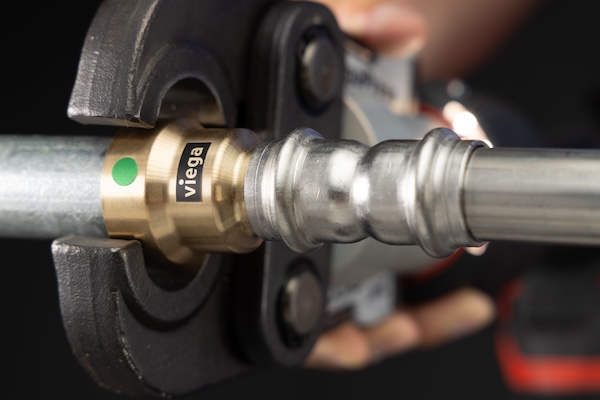
https://mechanical-hub.com/advancing-with-the-viega-megapress/
Viega Smart Connect Technology

The International Water, Sanitation and Hygiene Foundation (IWSH) announces its annual IWSH Scholarship Essay Contest, challenging students to examine how government and private sector collaboration can accelerate access to safe drinking water. This year’s topic asks high school seniors and post-secondary students to consider: “Why should the government and private sector come together to provide Read more
The International Water, Sanitation and Hygiene Foundation (IWSH) announces its annual IWSH Scholarship Essay Contest, challenging students to examine how government and private sector collaboration can accelerate access to safe drinking water.
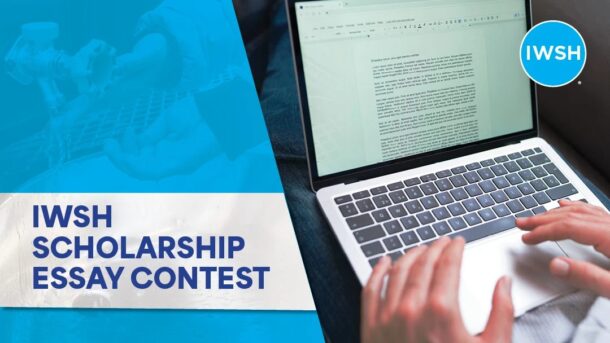
This year’s topic asks high school seniors and post-secondary students to consider: “Why should the government and private sector come together to provide improved access to clean drinking water?” The contest typically draws over 200 entries from students worldwide, reflecting IWSH’s global reach.
“Through this essay contest, we’re connecting with young people who understand that clean water changes lives,” said Sean Kearney, IWSH Managing Director. “We want students to think about how partnerships can solve real problems.
With more than 2 billion people globally lacking access to safely managed drinking water and millions in the U.S. without basic plumbing, IWSH brings together skilled plumbers, quality products, and community training to create lasting change.
“These fresh perspectives help us show that modern plumbing is more than just fixing leaks,” said Gaby Davis, Chief Administrative Officer of IAPMO, the parent organization of IWSH. “It’s about building healthier communities and opening career paths that make a difference.”
The contest welcomes entries from high school seniors, students in technical schools, community colleges, trade programs, and undergraduates at four-year institutions. One first-place winner will receive a $2,000 scholarship, and three second-place winners will each receive $1,000. Winners also have their work published in IAPMO’s Official magazine, putting their ideas in front of industry leaders throughout the sector.
The Sandra Imprescia Essay Scholarship Committee reviews the submissions to determine the top four, recommending the winning essays to IWSH’s Board of Trustees. Winners will be announced this Fall.
The entry deadline is April 30, 2025, at 11:59 p.m. Pacific Time. For more information or to submit an entry, visit iwsh.org/iwsh-world-plumbing-day-essay-contest.
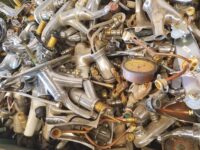
We have to admit, as a society most Americans have become lazier, or perhaps we’ve been conditioned to expect more, faster, with little effort as possible. Literally never having to leave the house for items delivered to your front door is just one shining example. But, hey, what’s not to like? Yet, this begets a Read more
We have to admit, as a society most Americans have become lazier, or perhaps we’ve been conditioned to expect more, faster, with little effort as possible. Literally never having to leave the house for items delivered to your front door is just one shining example. But, hey, what’s not to like?
Yet, this begets a larger problem. Because homeowners can get something cheaper delivered to them in a relatively short amount of time lends itself to receiving, what I call, in some instances, junk. Eliminating the professional plumbing installer is a problem in and of itself, but do we really know where these items come from? Take, for example, products within our own plumbing and HVAC markets? Tools, fittings, pumps, plumbing fixtures, etc., are now “flooding” the streets with no real traceable origin, and no compliance or testing to boot.
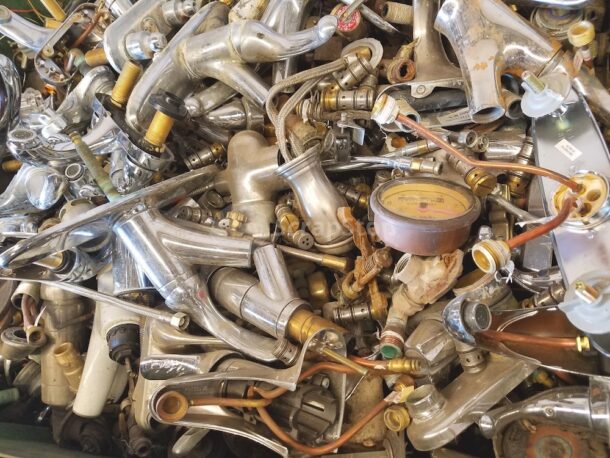
The issue of counterfeit or noncompliant products on various e-commerce platforms is a real concern of the industry. A couple of weeks ago, I attended the Plumbing Industry Leadership Coalition (PILC) and this topic of conversation came up; it was presented to the attendees that on behalf PILC—of what I call all of the acronyms in the industry (ASPE, PHCC, IAPMO, PMI, etc.)—a letter was being drafted to legal counsel at Amazon, for example.
In fact, one of the charter members of PILC mentioned that they had purchased 25 showerheads off of an e-commerce site. These items claimed to be nearly 2.0 gallons per minute, and when measured at local testing facilities, approximately 20 out of the 25 fixtures were actually near a 6.0 gallon per minute measurement. That’s a huge discrepancy.
And that’s just it. Getting stuff delivered to your door—relatively quickly and cheaply—can be good for your endorphins, but it also can be a huge problem. There is no testing, certification or compliance happening from these “third-party vendors.” As mentioned above, it can cause harmful risks, and could potentially cause a water sustainability problem. Again, therein lies the problem.
Realistically, what can be done about it? PILC suggests a number of action items, which include implementing a stricter verification process, ensuring that all legal and safety standards by either requiring certification or at least to verify that certification claims are true, and provide better transparency: provide clear information about the compliance and certification of products, making it easier for consumers to make informed decisions.
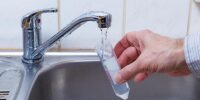
Ontario, Calif. — With the U.S. Environmental Protection Agency (EPA) issuing the first national drinking water standards for per- and polyfluoroalkyl substances (PFAS), the International Association of Plumbing and Mechanical Officials (IAPMO®) continues to lend its expertise and leadership to helping manufacturers and the industry navigate the changes and ensure a seamless transition. IAPMO’s subject Read more
Ontario, Calif. — With the U.S. Environmental Protection Agency (EPA) issuing the first national drinking water standards for per- and polyfluoroalkyl substances (PFAS), the International Association of Plumbing and Mechanical Officials (IAPMO®) continues to lend its expertise and leadership to helping manufacturers and the industry navigate the changes and ensure a seamless transition.
IAPMO’s subject matter experts will participate on committees and working groups for numerous relevant standards, including NSF/ANSI/CAN 61: Drinking Water Components — Health Effects; NSF/ANSI 53: Drinking Water Treatment Units — Health Effects; NSF/ANSI 58: Reverse Osmosis Drinking Water Treatment Systems; and ASSE LEC 2006: Point of Entry Reverse Osmosis Systems. IAPMO strongly encourages manufacturers of applicable products to join the process to ensure their voices are heard as these important standards are updated. The EPA has provided a fact sheet on home filters to reduce PFAS levels.
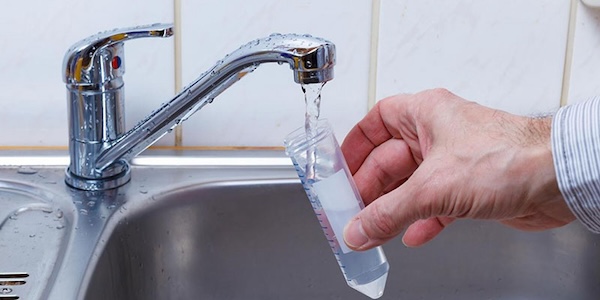
In addition, IAPMO has published documents with vital information plumbing and product manufacturers need to know before the restrictions become mandatory, including an overview of the standards development process and how to get involved. There is also an opportunity to sign up for notifications about committees and updates. The information is available at https://iapmort.org/pfas-compliance-guide.
“The EPA rule means five PFAS chemicals will be added to the pass/failure requirements in the NSF/ANSI 61 standard. It’s a significant change,” IAPMO Chief Technical Services Officer Tom Palkon said. “IAPMO R&T is already equipped to provide testing to standards that govern products that may be affected by this new rule. We welcome questions and concerns from manufacturers that seek clarity.”
Exposure to PFAS, also known as “forever chemicals,” has been linked to an increased risk of certain types of cancers, impacts to the immune system and thyroid, and reproductive and developmental effects.
This final rule represents the most significant step to protect public health under EPA’s PFAS Strategic Roadmap. The final rule will reduce PFAS exposure for approximately 100 million people, prevent thousands of deaths, and reduce tens of thousands of serious illnesses. The announcement complements President Biden’s government-wide action plan to combat PFAS pollution. This Final Rule will impact more than 66,000 public water systems by 2027, these public water systems must monitor and provide three years of initial monitoring. By 2029, these systems will have five years to implement solutions to reduce PFAS, and these systems where drinking water violates one of more MCLs must take action and must notify the public of the violation.
The rule establishes legally enforceable levels for several PFAS known to occur individually and as mixtures in drinking water. It sets limits for five individual PFAS: PFOA, PFOS, PFNA, PFHxS, and HFPO-DA (also known as “GenX Chemicals”), as well as a limit for mixtures of any two or more of four PFAS: PFNA, PFHxS, PFBS, and “GenX chemicals.” By reducing exposure to PFAS, this final rule will help advance public health and safety.
The EPA’s free Water Technical Assistance program (WATERTA) is providing support and access to federal funds of underserved and disadvantaged communities to comply with the new Rule. The EPA also will offer a free webinar April 30 on various aspects of the Final Rule.
Manufacturers have long trusted IAPMO R&T for its foresight in assisting them to meet the dynamic legislative demands on their water treatment products, faucets, valves, fittings and other products that contact drinking water. IAPMO R&T has been certifying products to be in compliance with standards governing their use since 1936.

Domestic hot water (DHW) sizing and design is critical to optimize energy efficiency, reduce water waste, and improve safety. Host Christoph Lohr, P.E. returns to the webinar series to detail the engineering methods that can help designers right-size their hot water return (HWR) system. He will recap the September ’23 Coffee with Caleffi™ webinar (Ten Things to Read more
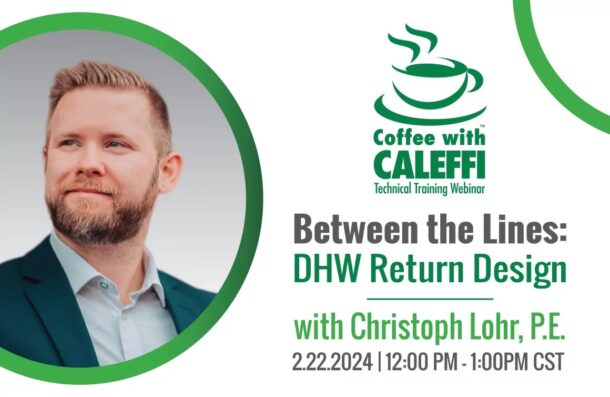
Domestic hot water (DHW) sizing and design is critical to optimize energy efficiency, reduce water waste, and improve safety. Host Christoph Lohr, P.E. returns to the webinar series to detail the engineering methods that can help designers right-size their hot water return (HWR) system. He will recap the September ’23 Coffee with Caleffi™ webinar (Ten Things to Know About DHW Return Design) and discuss three critical items regarding DHW return design:
- Balancing Valve Selection Impact on HWR System Sizes
- The Equations that Govern Right-Sizing Hot Water Return Systems (Hardy Cross Methodology)
- Pipe Routing and Plumbing Fixture impact on Hot Water Return System Design
Christoph is IAPMO’s Vice President of Technical Services and Research. As part of his duties he provides industry leadership through participation in strategic industry initiatives, and provides technical support to all IAPMO’s business units as needed. Christoph has over a decade of experience in designing plumbing systems and has a reputation as a results-oriented expert, particularly in the realm of balancing waterborne pathogen prevention and water sustainability. He is a distinguished graduate from the Virginia Military Institute, with a Bachelor of Science in Mechanical Engineering.
Coffee with Caleffi technical training webinars are free and intended for contractors, designers and wholesalers. By submitting your webinar registration, you are consenting to email communications to keep you up-to-date on industry news.
All Coffee with Caleffi webinars are complimentary, but registration is required for real-time attendance. After registering, you will be immediately forwarded a confirming email containing login details for attending the webinar. When training time comes, grab a coffee, tune in and learn more about Caleffi’s innovative products and how they can add value to your work. A Certificate of Attendance is emailed to all attendees following the webinar.
Missed a webinar? No problem! Our webinars are available 24/7 on YouTube for your convenience. The archive is a collection of our most popular webinars with content geared towards benefiting professionals in the hydronic and plumbing fields.
